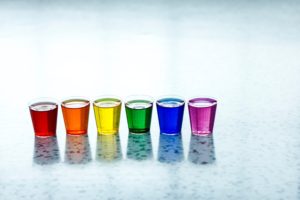Did you know there is a quick way to check if your body is bloated up due to water retention? Check your weight in the morning and in the evening. If the two vary, it is a clear symptom of water retention problem that can lead to often painful swelling in legs, palms, face or stomach. The problem is commonly described as edema and is caused by a mineral imbalance in the body. Thankfully, you do not have to look too far to find healthy holistic treatment for water retention. Ancient Ayurvedic texts have already laid out for you- herbs, treatments and dietary recommendations to reduce and expel the excess fluid retained in the body.
According to Ayurveda, people with Kapha body type or those with Kapha imbalance are more prone to have this problem, as Kapha dosha is responsible for the regulation of fluids in the body. When edema is caused by poor blood circulation, it can have Vata vitiation at its root.
Here’s what you can do, according to Ayurveda, to reduce retention of water in body tissues.
-
Abhyanga or oil massage for edema
If you have water retention in the feet, applying and massaging the affected part with a blend of essential oils like mint, eucalyptus or lemon can help flush out toxins and excess fluid from the body. An essential Ayurvedic practice, massage can also help you move through harsh winters without the stiffness and dryness it brings. · It also stimulates internal organs and improves circulation of blood and lymph in the body that works towards improving expelling waste and detoxifies the body, apart from helping you sleep well.
 You can try Shankara’s Nourishing Foot Oil that comes loaded with the benefits of herbs and essential oils including sunflower oleic oil, sesame oil, kukui nut oil, jojoba oil, grapeseed oil, vitamin E Tocopherol, lemon basil essential oil, peppermint essential oil, butcher’s broom extract, dashmoola extract, Neem, other essential oils like cardamom, cassia, camphor, tea tree, clove, ginger root and extracts of ashwagandha, olive leaves, manjishta and lavender.
You can try Shankara’s Nourishing Foot Oil that comes loaded with the benefits of herbs and essential oils including sunflower oleic oil, sesame oil, kukui nut oil, jojoba oil, grapeseed oil, vitamin E Tocopherol, lemon basil essential oil, peppermint essential oil, butcher’s broom extract, dashmoola extract, Neem, other essential oils like cardamom, cassia, camphor, tea tree, clove, ginger root and extracts of ashwagandha, olive leaves, manjishta and lavender.
(Also Read: Everything you need to know about abhyanga)
-
Have foods rich in potassium
You need sufficient potassium in the body to maintain the water level and balance or neutralize the excess sodium. It regulates the water content in your body. Fruits like oranges, melons, bananas, apricots, pomegranate, berries and papaya are rich in potassium.
Also make sure your diet contains vegetables that are natural diuretics like asparagus, pumpkin, beans, garlic and spinach, among others. They stimulate appetite, balance potassium, and are light on the body.
Experts also recommend having foods that are rich in fiber due to their ability to absorb water. These can include broccoli, whole wheat grains, artichoke, oatmeal, chia seeds, flax seeds, and berries.
Among the vitamins, your body needs more of Vitamin B6 to reduce water retention. Vitamin B6 is a natural diuretic that is it causes to increase urine production and removes the water retained in your body. For women, who have water retention due to menstruation can increase the consumption of vitamin B6 rich foods. It can be found in walnuts, potatoes, chickpeas, and avocadoes.
-
Have infused water

Consuming water infused with apple cider vinegar, methi, cinnamon or coriander seeds first thing in the morning can do wonders in treating water retention. They heal your system, detox your kidneys, and maintain the delicate balance between sodium and potassium.
-
Drink enough water
When you have a water retention problem, you will find that you may drink enough water but you do not pass urine just as often, and as a result, you may feel bloated. But experts recommend continuing to drink water. A dehydrated body defends itself by storing fluids in various parts of the body. This is the reason when you travel a long distance and have not had enough water, your feet tend to swell up and it is not just due to improper blood circulation.










